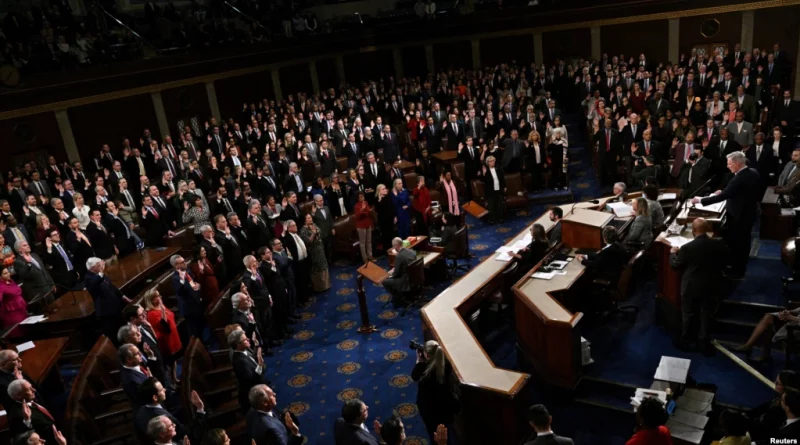The House of Representatives approved its rules of operation
The House of Representatives approved its rules of operation
The Republican-controlled House of Representatives on Monday passed a package of internal rules that gives hard-line right-wing supporters more leverage over the newly elected speaker of the lower house of Congress, Kevin McCarthy.
The rules package, backed by 220 lawmakers, which will govern the House of Representatives for the next two years, represents the first test of McCarthy’s ability to keep his caucus united after he was elected speaker last week after 15 rounds of voting.
The rules include key concessions that hardliners had sought and that McCarthy agreed to in his bid for the speaker’s seat. Under the new rules, an initiative by just one lawmaker unhappy with the speaker’s actions would be enough to bring a motion to remove him to the House at any time. Other changes put new limits on federal spending, potentially limiting McCarthy’s ability to negotiate government funding packages with President Joe Biden, whose Democratic colleagues control the Senate.
Democrats condemned the legislation, calling it a “MAGA-extremist” rule package that would favor powerful corporations over workers, undermine congressional ethical standards and lead to further restrictions on abortion services.
“These rules are not a serious attempt at governance. It’s essentially a ransom note to buy America off the far right,” said Democratic Congressman Jim McGovern.
Republicans won 222 seats in the House of Representatives after winning fewer than expected seats in the November midterm elections. This increased the power of hardliners and raised questions about how a divided Congress would function. Democrats hold 212 seats in the lower house of Congress.
Lawmakers face important challenges in the coming year, including tackling the issue of increasing the federal government’s debt limit, which now stands at $31.4 trillion. Failure to raise the ceiling, or even prolonged opposition to the issue, could have a negative impact on the world economy.
Other changes include a 72-hour waiting period between when the bill is introduced and when it can begin to be voted on, a cap on government spending at the 2022 level, and the creation of a Justice Department investigative committee.
